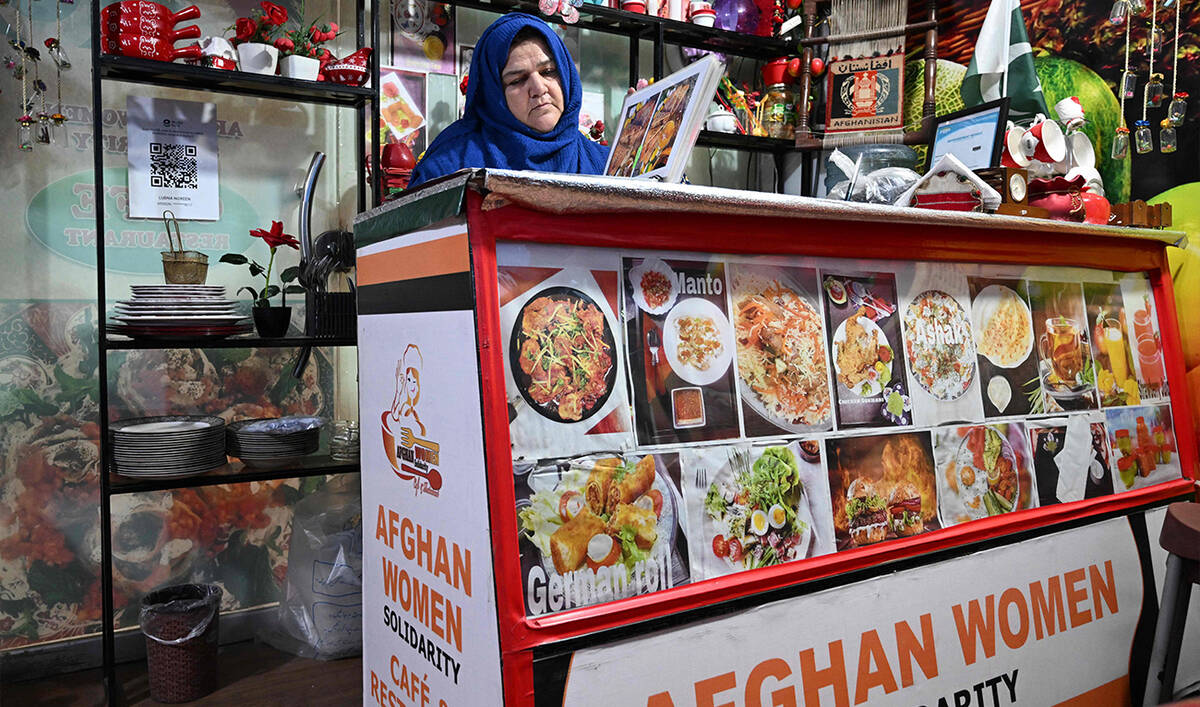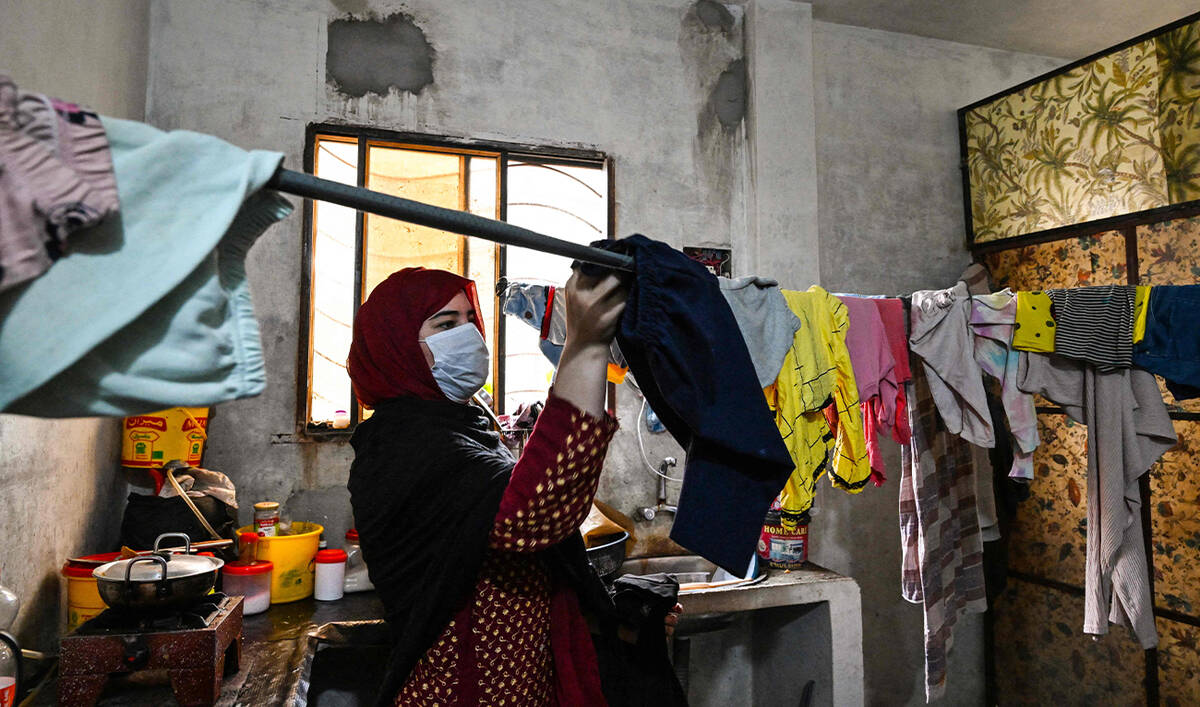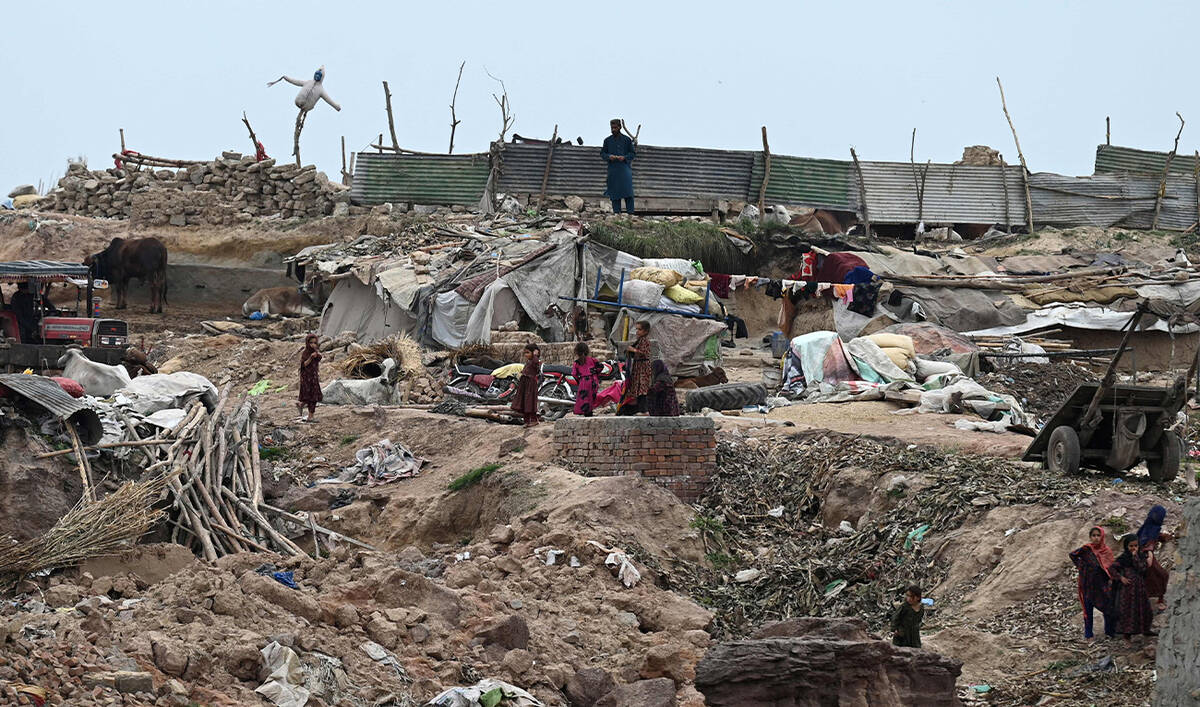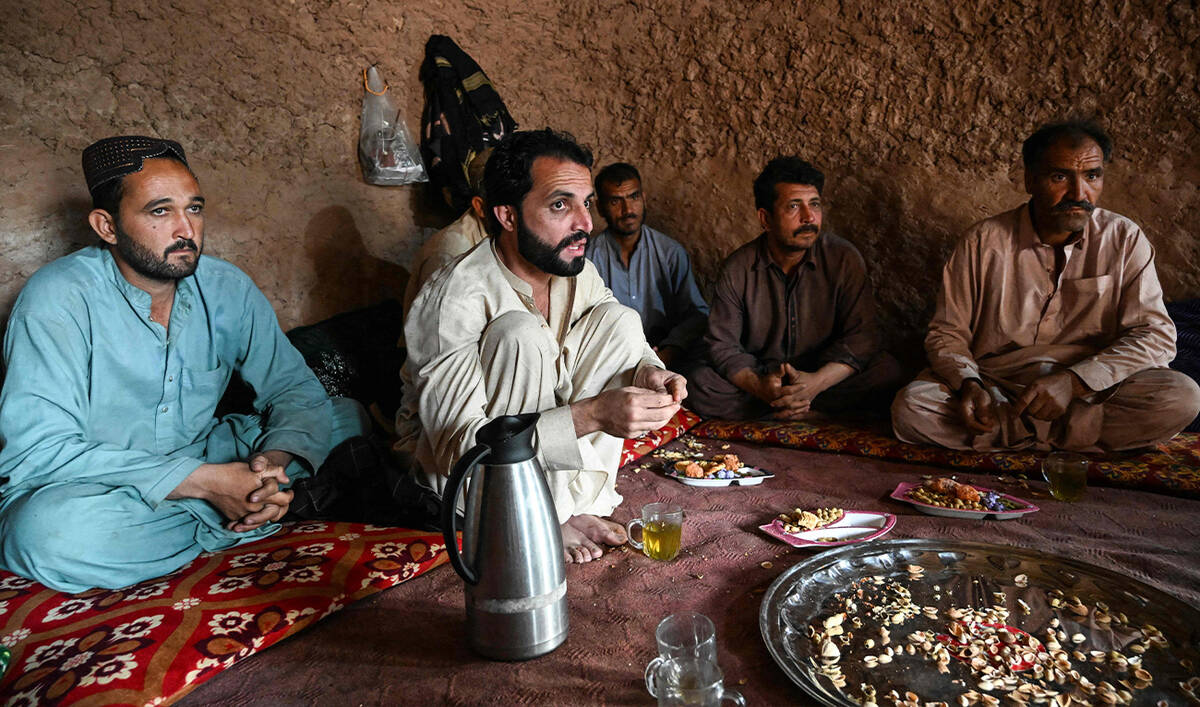ISLAMABAD: Cash-strapped Pakistan, struggling to bolster depleted public finances, hopes to earn much-needed hard currency by selling UN-backed carbon offsets from a massive reforestation project named the Billion Tree Tsunami, the climate change ministry said on Tuesday.
If approved and registered by the United Nations, this would be the first project for Pakistan under a scheme called the Clean Development Mechanism that promotes investments in emission-reducing projects in the developing world by companies and governments in rich nations.
In return for building wind farms or other projects, such investments can earn valuable carbon offsets called certified emission reductions (CERs) that can be sold for profit or used to meet mandatory targets to cut emissions.
Cricket-star turned politician Imran Khan, whose Pakistan Tehreek-e-Insaf (PTI) party won the 2018 general election in Pakistan, spearheaded the Billion Tree Tsunami project, which started in 2014 and cost $169 million. Under the project, a total of 300 million trees of 42 different species were planted across the northwestern Khyber Pakhtunkhwa province, where the PTI headed the provincial government from 2013-2019.
Khan, now prime minister, has allocated $47 million in this year’s budget to expand the forestation project and plant 100 million trees in five years across the country.
Now, the government wants to be rewarded for the project that it says will go a long way in reducing carbon emissions.
“We have awarded consultancy to a reputable firm to examine the potential of carbon credits in Pakistan and their prospects of being sold in the international market,” Javed Shahzad, a spokesman for the Ministry of Climate Change, told Arab News, adding that the firm would complete its work within six months.
“Prices of carbon credits keep changing in the international market, but we are hopeful to at least recover the cost of our Billion Tree Tsunami project by selling the credits,” Shahzad said.
Inger Andersen, head of the International Union for Conservation of Nature (IUCN), the NGO in charge of administering the Bonn Challenge, has described the Pakistani project as “a true conservation success story.” Experts at World Wildlife Fund-Pakistan, which monitored and conducted an independent audit of the reforestation drive, have said the project has been an environmental, economic and social success.
Pakistan is the seventh most affected country by the adverse impacts of climate change, though it emits less than one percent of total annual global greenhouse gases. In a report submitted to the Economic and Social Council of the United Nations recently, Pakistan has sought compensation for its low carbon footprint to meet the estimated $10.7 billion per year needed for climate adaptation, and $8-17 billion for mitigation.
Under the Clean Development Mechanism, a carbon credit is issued for every ton of avoided greenhouse gases, and holders of the credits can then contribute the credits to their national targets, or sell them back on the market for money.
Government around the world raised approximately $33 billion in carbon pricing revenues in 2017 through allowance auctions, direct payments to meet compliance obligations and carbon tax receipts, said a World Bank report titled “State and Trends of Carbon Pricing 2018.” This amount represents an increase of nearly $11 billion compared to the $22 billion raised in 2016.
“The international market for selling and buying carbon credits is very small, and Pakistan should not expect to earn a huge amount based on its low-emission projects,” Dr. Pervaiz Amir, a climate expert said.
He suggested instead that the government should hire international experts and firms to develop low-emission and climate-resilient projects for which it could get grants from the World Bank and the Green Climate Fund, which have an allocation of $250 billion and $100 billion respectively to help developing countries cut greenhouse gas emissions.
“We should develop partnerships with industrial countries like Japan, Norway and Germany to help them meet their carbon emission targets and earn revenue,” Amir said.
Pakistan seeks to earn millions on carbon credits from ‘Billion Tree Tsunami’ project
Pakistan seeks to earn millions on carbon credits from ‘Billion Tree Tsunami’ project

- Consultancy hired to examine prospects of selling carbon credits in international market, climate ministry says
- UN Clean Development Mechanism promotes investments in emission-reducing projects in developing world by rich nations
Pakistan says killed eight militants infiltrating its border with Afghanistan

- The Pakistani Taliban militants were trying to infiltrate the border in North Waziristan district of Pakistan’s Khyber Pakhtunkhwa province
- Islamabad has frequently blamed the surge in militancy in its western provinces of KP and Balochistan on Afghanistan, Kabul denies the charge
ISLAMABAD: Pakistani security forces have killed eight Pakistani Taliban militants who were attempting to infiltrate the country’s border with Afghanistan in the northwestern Khyber Pakhtunkhwa province, the Pakistani military said on Sunday.
Pakistan has struggled to contain a surge in militancy in the country, particularly in KP, since a fragile truce between the Pakistani Taliban, or the Tehreek-e-Taliban Pakistan (TTP), and Islamabad broke down in November 2022.
The TTP and other militant groups have frequently targeted security forces convoys and check-posts, besides targeted killings and kidnappings of law enforcers and government officials in recent months.
In the latest incident, security forces had an intense exchange of fire with the group of militants who attempted to infiltrate the border in KP’s North Waziristan district, according to the Inter-Services Public Relations (ISPR), the Pakistani military’s media wing.
“Sanitization operation is being conducted to eliminate any other Kharji [TTP militant] found in the area,” the ISPR said in a statement.
The North Waziristan district, which borders Afghanistan, had been a stronghold of the TTP before successive military operations drove the militants out of the region more than a decade ago. Pakistan says TTP fighters have regrouped in the restive region in recent years.
Islamabad has frequently blamed the surge in militancy in its western provinces of KP and Balochistan on Afghanistan, accusing Kabul of sheltering and supporting militant groups that launch cross-border attacks. Afghan officials deny involvement and insist that Pakistan’s security issues are an internal matter of Islamabad.
“Pakistan has consistently been asking interim Afghan government to ensure effective border management on their side of the border,” the ISPR said.
“Interim Afghan government is expected to fulfil its obligations and deny the use of Afghan soil by Khwarij for perpetuating acts of terrorism against Pakistan.”
Pakistan seeks ‘comprehensive’ partnership with Russia in energy, agriculture and IT sectors

- Pakistan and Russia, once Cold War rivals, have strengthened ties in recent years through increased dialogue and trade cooperation
- Senate Chairman Gilani expresses Pakistan’s support for Russia’s role in promoting regional stability, multipolar global governance
ISLAMABAD: Pakistan seeks a “comprehensive” partnership with Russian in energy, agriculture, information technology (IT) and other sectors, Pakistan’s Senate Secretariat said on Sunday, citing Senate Chairman Yousuf Raza Gilani.
The statement followed Gilani’s meeting with Valentina Matviyenko, chairwoman of the Federation Council of the Russian Federation, on the sidelines of the 150th Inter-Parliamentary Union (IPU) Assembly in Tashkent.
Gilani highlighted the shared aspirations of both nations for peace, security and multipolarity in global affairs, and emphasized the increasingly broad-based cooperation across various sectors and multilateral platforms.
“Both sides discussed diversifying economic ties in areas such as energy, agriculture, pharmaceuticals, and IT. Chairman Gilani advocated for the establishment of banking channels and improved connectivity under regional frameworks,” the Senate Secretariat said in a statement.
“Chairman Gilani concluded by reaffirming Pakistan’s readiness to work with Russia toward a comprehensive, forward-looking partnership and extended an invitation for future parliamentary exchanges in Islamabad.”
Pakistan and Russia, once Cold War rivals, have strengthened ties in recent years through increased dialogue and trade. In 2023, Islamabad began purchasing discounted Russian crude oil banned from European markets due to Russia’s war in Ukraine, and also received its first shipment of liquefied petroleum gas from Moscow.
In December last year, Russia and Pakistan held intergovernmental meetings in Moscow and discussed cooperation on oil and gas offshore exploration and refining, according to a Reuters news agency report. Russian Ambassador to Pakistan Albert P. Khorev this year announced cooperation with Pakistan in the energy and industrial sectors, including the modernization of a state-owned steel mill.
Gilani expressed Pakistan’s support for Russia’s role in promoting regional stability and multipolar global governance, according to the Senate Secretariat.
“Both sides emphasized the importance of coordinated efforts in forums like the SCO (Shanghai Cooperation Organization) and UN (United Nations), particularly regarding climate action, food security, and counter-narcotics,” it added.
‘No one to return to’: Afghans fear Pakistan deportation

- Islamabad announced at the start of March that 800,000 Afghan Citizen Cards would be canceled
- The deportation program has already forced 800,000 undocumented Afghans across the border
Rawalpindi: Benazir Raufi stands alone in her restaurant, her staff and customers too afraid to visit after Pakistan’s government announced it was canceling the residence permits of hundreds of thousands of Afghans.
Islamabad announced at the start of March that 800,000 Afghan Citizen Cards (ACC) would be canceled — the second phase of a deportation program which has already forced 800,000 undocumented Afghans across the border.
“If I’m deported, it will destroy me. Either my heart will stop, or I’ll take my own life,” 45-year-old Raufi, who was 13 years old when her family fled civil war in Afghanistan in the 1990s, told AFP.
“Pakistan gave us our smile and now those smiles are being taken away.”

Ten Afghan women who worked for her have refused to leave home after the restaurant in Rawalpindi was raided by police — facing deportation to a country where women are banned from studying, certain jobs and visiting some public places like parks.
“I have no one to return to. The Taliban won’t accept us,” Raufi added, her voice cracking.
The government’s deadline for ACC holders to leave voluntarily has been pushed back to April, but harassment by authorities has been underway for months, according to activists.
Those born in Pakistan, married to Pakistanis, or living for decades in the country are among those to have their government residence permits canceled.
The deportation campaign comes as political ties between the neighboring governments have soured over Pakistan’s rapidly deteriorating security situation along the border.
Last year was the deadliest year in almost a decade in Pakistan, with more than 1,600 people killed in attacks — nearly half of them security forces personnel — according to the Islamabad-based Center for Research and Security Studies.
Pakistan accuses the Taliban government of failing to root out militants sheltering on Afghan soil, a charge the Taliban government denies.
The Taliban government has repeatedly called for the “dignified” return of Afghans to their country, with Prime Minister Hassan Akhund urging countries hosting Afghans not to force them out.

“I have freedom (in Pakistan) — I can visit the park, and my daughter can go to school,” Dua Safay, who fled when the Taliban government returned to power in 2021.
“There’s no future for me or my daughter in Afghanistan,” added Safay, whose real name has been changed.
Some 600,000 Afghans have crossed the border into Pakistan since the Taliban government implemented their austere version of Islamic law.
“They will be sent back to a country where conditions are extremely harsh, especially for women and children,” according to Moniza Kakar, a Pakistan-based human rights lawyer.
“These people fled to escape persecution. Forcing them back into that fire is a violation of international law.”
Millions of Afghans have traveled to Pakistan over the past four decades, fleeing successive conflicts including the Soviet invasion, a civil war and the post-9/11 US-led occupation.
The ethnic Pashtun belt of Khyber Pakhtunkhwa which borders Afghanistan shares close cultural and linguistic ties with Afghan Pashtuns.

Around 1.3 million Afghans with resident cards issued by the UN Refugee Agency (UNHCR) are allowed to remain in the country but have been banned from the cities of Islamabad and Rawalpindi.
“Over 1,000 people have been moved to detention centers in the past three to four days, while thousands are leaving voluntarily all over Pakistan,” Kakar added.
Many families fear being mistreated or extorted for money by the authorities if they are detained, or of being separated from relatives.
“If I have to go, I’ll go in tears, with a broken heart,” said 43-year-old Naimatullah, who was born in Pakistan and has never been to Afghanistan.
“They (people) won’t even see me as an Afghan — they’ll call me Pakistani. I am a nobody.”
After the deadline, Samiullah, who was born in an Afghan refugee camp in Pakistan and is married to a Pakistani woman, will be considered an illegal foreigner.
“My wife will not be able to go with me, my daughters are from here. It is a constant struggle. I can’t get caught,” the 29-year-old told AFP.

Tens of thousands of Afghans living in Pakistan who are waiting to be relocated to Western nations also fear being deported.
Most are advised by Western nations to cross into Pakistan where their asylum claims take months to be processed.
Among them is Samia Hamza, a 31-year-old women’s rights activist and mother of four, currently in the northwestern city of Peshawar.
“They gave us a support letter but the Pakistani police does not recognize it,” she told AFP.
“We need to stay one more month in Pakistan, then we will receive our visa to Brazil and leave.”
European experts to arrive in Islamabad tomorrow to train Pakistani aviation inspectors

- Pakistan has recently witnessed a massive surge in militant violence, including deadly suicide attacks
- The development comes months after EU lifted its ban on PIA and authorized Airblue to fly to the bloc
ISLAMABAD: A team from the European Civil Aviation Conference (ECAC) will arrive in Islamabad on Monday to provide specialized security training and certification to Pakistani aviation inspectors, a Pakistan Civil Aviation Authority (PCAA) official said on Sunday, amid growing security concerns in the South Asian country.
Pakistan has recently witnessed a massive surge in militant violence, including deadly suicide attacks, in its two western provinces of Balochistan and Khyber Pakhtunkhwa.
According to the Global Terrorism Index (GTI) 2025 report, Pakistan is the second-most affected country by terrorist violence, with a 45 percent rise in deaths in 2024.
Pakistan reached out to the ECAC for the training of its civil aviation inspectors after the resumption of Pakistani flights to the EU in Jan. this year, according to PCAA officials.
“The ECAC team is arriving in Pakistan tomorrow to conduct training of our inspectors on two key areas of Explosives Trace Detection (ETD) and Explosive Detection Dogs (EDD),” PCAA Director of Aviation Security Shahid Qadir told Arab News.
“The training aims to enhance their ability to inspect explosive detection machines as well as guide the handlers of detection dogs on key focus areas and essential elements to ensure the highest standards of inspection.”
In November, the European Aviation Safety Agency (EASA) lifted its ban on the Pakistan International Airlines (PIA) and authorized another local airline, Airblue, to operate flights to Europe. The ban had been in place since June 2020 due to concerns over the ability of Pakistani aviation authorities to meet international standards.
Qadir said the PCAA was committed to meeting all international standards and it was ensuring the credentials of Pakistani inspectors align with those of developed countries in Europe and the United States.
“The two-member ECAC team will conduct a four-day training at Islamabad International Airport, where twelve of our aviation security regulatory inspectors will receive the training,” the official said.
“They will conduct the training and certify the inspectors upon its completion.”
He said this training would enhance the Pakistani team’s specialization and strengthen the country’s credibility, urging aviation inspectors to apply across all airports in Pakistan.
Aviation security is the most frequently inspected area each year, according to Qadir. During such inspections, one of the first things international regulators review is the profile of inspectors.
“When they see the courses, training, and certifications our inspectors have completed, they recognize that we meet international standards,” he added.
Islamabad, Beijing sign agreement to boost Pakistan’s cotton production

- As per agreement, Chinese and Pakistani institutes will work on genetically improving cotton to increase its production
- Cotton is one of Pakistan’s most important crops, having a massive 51% share in country’s total foreign exchange earnings
ISLAMABAD: Two prominent institutes owned by the governments in China and Pakistan have signed a memorandum of understanding (MoU) to boost Pakistan’s cotton production through technological methods, state broadcaster reported on Sunday.
Cotton is one of Pakistan’s most important cash crops. At present, Pakistan is the fifth-largest producer of cotton and the third-largest producer of cotton yarn in the world, according to the Ayub Agricultural Institute.
Cotton has a 0.8% share in Pakistan’s GDP and a massive 51% share in the country’s total foreign exchange earnings. Cotton production in Pakistan has contributed to a vibrant textile industry with over 1,000 ginning factories and around 400 textile mills across the country.
“The MoU has been signed between the Ayub Agricultural Research Institute of Pakistan (AAIR) and the Institute of Cotton Research (ICR) of the Chinese Academy of Agricultural Sciences,” Radio Pakistan said in a report.
It said that as per the agreement, AAIR and ICR will work on genetically improving cotton to increase its production and promote Pakistan’s cotton industry globally.
ICR is China’s only state-level organization for professional cotton research. It focuses on basic and applied research, and organizes and presides over major national cotton research projects that address significant science and technology-related issues in cotton production.
Established in 1962, Punjab government’s AAIR describes itself as one of the country’s most prestigious research institutes that says its mission is to develop new varieties of crops and technologies for food safety.
The agreement takes place as Pakistan faces a surge in cotton imports this year due to low production. According to the Pakistan Central Cotton Committee, factories in Pakistan have received 5.51 million bales of cotton as of January this year, a significant decline of 34% compared to last year.
Pakistan’s eastern Punjab province, which produces the most cotton out of all provinces in the country, grew 2.7 million bales, a decline of more than 36% compared to last year.
Experts blame the low production of cotton due to irregular weather patterns brought about by climate change.









